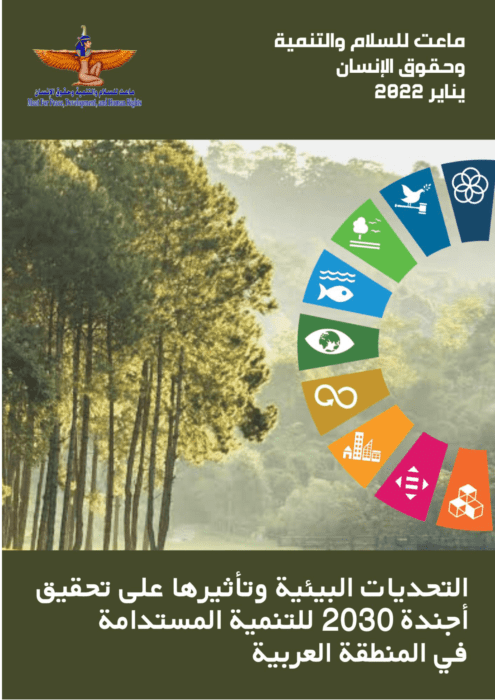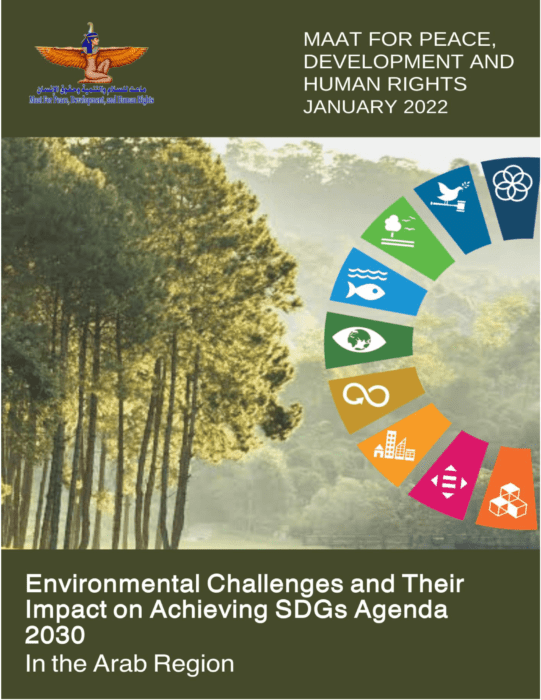Maat: Some Arab countries face various environmental challenges that affect the achievement of the 2030 Agenda
Okeil: We call for the establishment of a mechanism affiliated to the League of Arab States to address environmental issues
Basant Essam: Community awareness campaigns must be intensified to reduce environmental risks
Maat for Peace, Development and Human Rights stressed the need to pay attention to environmental sustainability as a priority and a main pillar that must be achieved in all sectors in the Arab region. "Although there are countries that have made remarkable progress towards achieving the environmental goals within their development plans, there are other countries that still have a long way to go and are hampered by various obstacles and challenges that prevent the full realization of the desired targets by 2030."
This passages is quoted from a study issued by Maat on “Environmental Challenges and Their Impact on Achieving the 2030 Agenda…Case Study of the Arab Region.” This study highlights the reality of achieving the environmental goals in the 2030 Agenda for Sustainable Development, which are SDG 13 on climate change, SDG 14 on life below water, and SDG 15 on life on land, and the extent to which these goals are achieved in the Arab region, especially in light of the COVID-19 pandemic that plagued the world in 2021.
In this context, Ayman Okeil, the human rights expert and the president of Maat for Peace, Development and Human Rights, stressed the necessity of developing legislative frameworks regulating the process of dealing with environmental resources, and imposing penalties for encroachment on the environment, in order to ensure the non-continuity of negative behaviors that exacerbate harmful environmental phenomena. Okeil stressed that the oil-producing countries should adopt certain paths to achieve economic growth in a manner that does not contradict the environmental and development policies and the strict laws associated with them that must be followed. The human right and development expert called on Arab countries to intensify their efforts in developing a mechanism affiliated with the League of Arab States to oversee the exchange of views and experiences to solve environmental issues, especially that’s of climate change.
For her part, Passant Essameldin, a researcher at the African Affairs and Sustainable Development Unit at Maat, said that some countries in the Arab region still adopt grazing, which results in harmful environmental effects such as increasing soil salinity and thus exacerbating the desertification crisis and the depletion of sandy areas, so those countries must follow technological irrigation methods in order to support the achievement of their environmental goals. The researcher also called for the intensification of societal awareness campaigns to reduce the risks of negative practices that exacerbate these phenomena harmful to the environment.
This study comes within the framework of Maat’s interest in sustainable development goals, as it is the coordinator of the North Africa region in the NGOs Major Group for Africa of the United Nations Department of Economic and Social Affairs.

 |
 |











